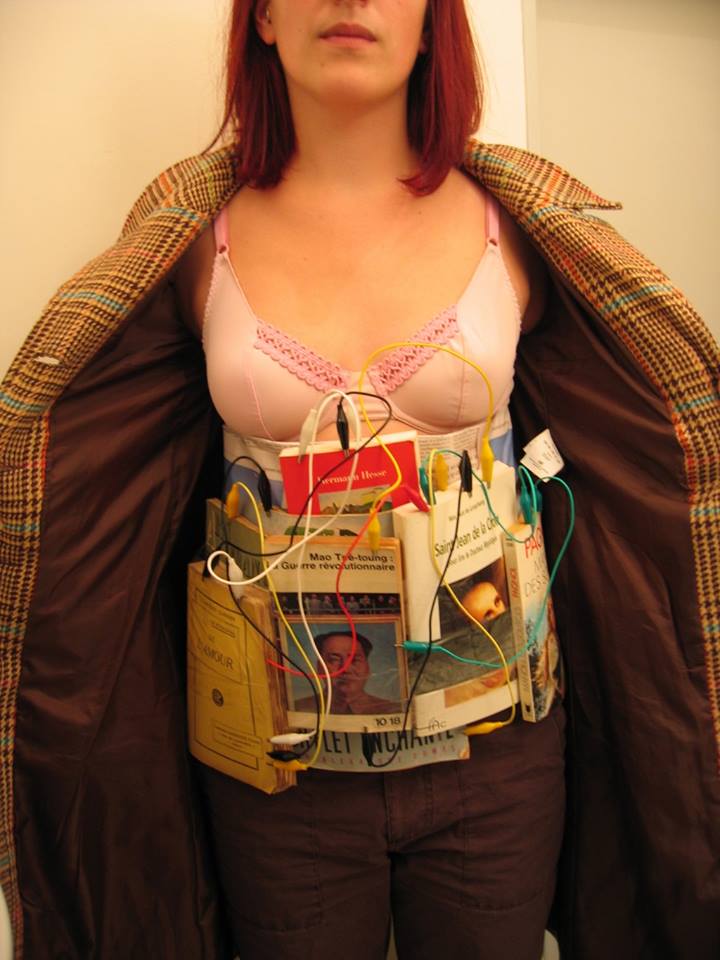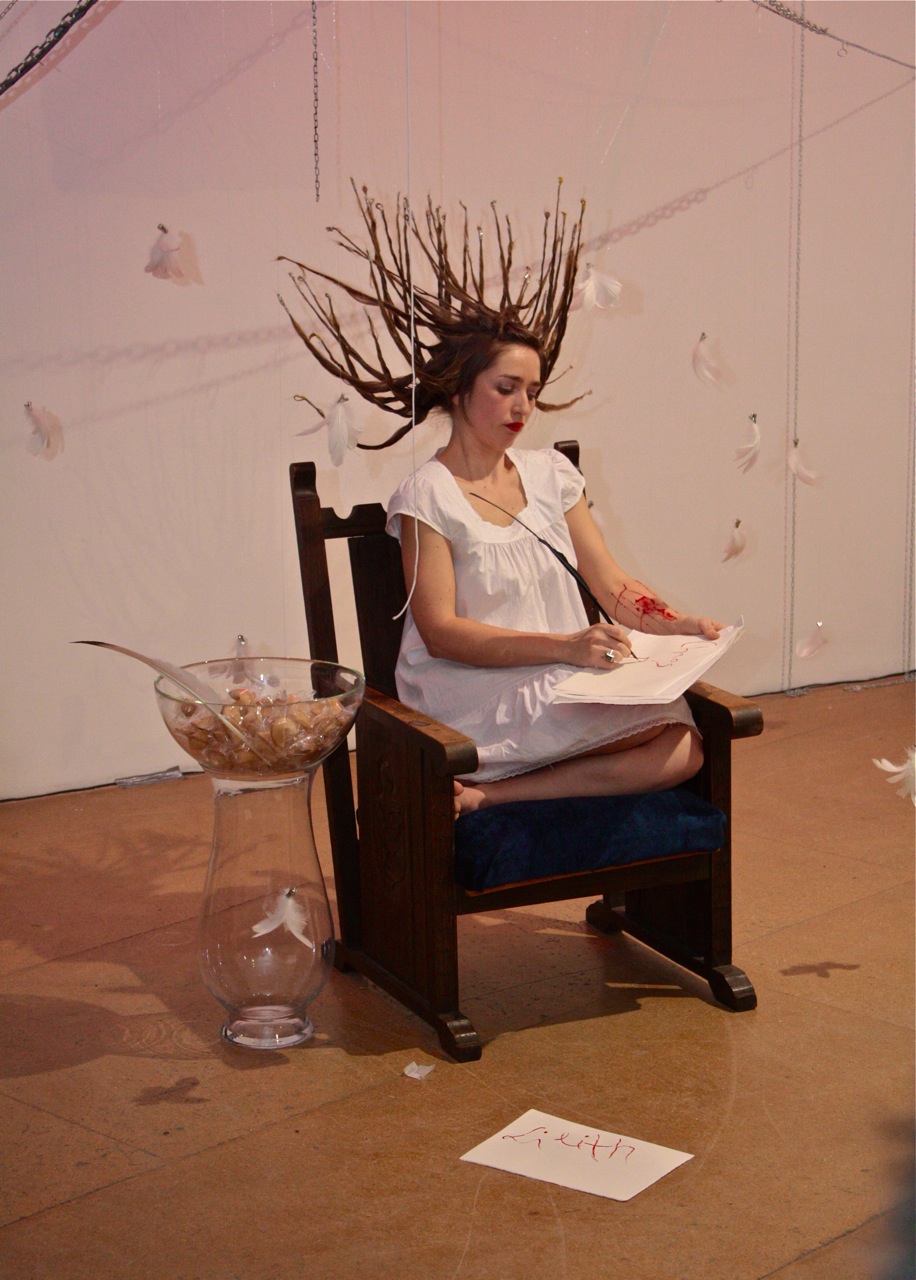
CVV (SUICIDE PREVENTION CENTER)
HELP YOUR SELF
Leo Burnett Brasil

HELP YOUR SELF
Leo Burnett Brasil

גיאורג קנטור, לודוויג בולצמן, קורט גדל, אלן טיורינג
dangerous knowledge documentary
whose genius has profoundly affected us (infinity; entropy; incompleteness; thinking machine) , but which tragically drove them insane and eventually led to them all committing suicide.

Paranoid Panopticum
Entering The Paranoid Panopticum you will run across your own fixation on control. While you will be able to control the visual by mirror and video- projection, a shift in the perception of reality takes place. Controlling changes into fear of being controlled, maximizing control becomes its own threat. In the Paranoid Panopticum you are haunted by your own mirrored projections. You can play with your own projection in a paradox based on the myth of Echo, Narcissus and his mirrored image. At the moment where Narcissus commits suicide, the mirrored image of the visitor is ‘suicided’. At this point the story starts over again.

פולנק
プーランク
Karen Vourc’h
La Voix Humaine
La Voix humaine is the first “lyric tragedy” to take place entirely over the telephone. The argument is simple: this is a woman’s last conversation with the man she loves, as he prepares to marry another. Story of a suicide attempt, distressing cuts, interference: so many stages in this modern telecommunications ordeal where passionate love follows
new ways and deviations.“If you don’t like me and if you were clever,” the woman said to the man, “the phone would become a scary weapon. A weapon which leaves no traces, which does not make noise … “

منير فاطمي
Evolution or Death
Fatmi inverts spectacular representations of identity by rendering them mundane and within reach of a subject that may scramble any conclusive narrative. Fatmi’s work counters strategies of interpellation that identifies a subject with an ideology prior to that subject’s ability to place their identity in or beyond a particular ideology. Fatmi parodies the various interpellations of colonialism and capitalism that seek to define others according to symbolic narratives. In Evolution or Death, 2004, (fig. 4) two Anglo-European looking subjects imitate suicide bombers with books and papers taped around their abdomens. One holds open a trenchcoat and another holds up a book that looks like a detonator attached to wires. Fatmi reverses the situation. These are not the suicide-bombers from Arab and Muslim countries. Instead, they appear to be of European descent in a European street or modern room in casual clothing.

1st light
Paul Chan’s work summons the darkness that envelops us despite the greedy illumination of our cities. Evoking our world on the verge of disintegration, it celebrates the light that emerges in too much light.
The fight is no longer the fight between day and night that inaugurates Murnau’s Faust, but that between the light of the spirit and the light of things. In this shadow theater, under the auspices of a telegraph pole shaped like the Golgotha cross, we witness the rise of the objects of our consumerist societies.
Phones, I-Pods, scooters, whole trains rise to the sky, saved, as the shadows of men fall, hurled to the abyss, like the suicide bodies of “September 11” victims falling from burning towers.
The image, gradually modified along the continuum of projection, carries with it the prophecies of the Apocalypse rehashed by American fundamentalist movements, and the obvious disgrace of a society that celebrates its materialist cult.

The Porcelain Suicides

أندريه تاركوفسكي
塔可夫斯基
アンドレイ·タルコフスキー
Андрей Тарковский
nostalghia
From the opening images of Nostalghia (1983), Andrei Tarkovsky presents the two disparate worlds-the spare, monochromatic landscape of the Russian countryside and the lush, idyllic meadows of rural Italy-that collided within the soul of Russian author, Andrei Gortchakov (Oleg Yankovsky). Gortchakov has travelled to Italy on an extended research expedition to retrace the emigrant journey of an acclaimed eighteenth century Russian composer named Pavel Sosnovsky who, despite achieving international recognition away from his homeland, eschewed fame and returned to the humble life of a feudal serf, only to sink further into despair and commit suicide. Gortchakov, accompanied by his translator, Eugenia (Domiziana Giordano), has travelled to the hills of Tuscany to see Piero della Francesca’s Madonna of Childbirth, but upon arriving, becomes disinterested in the attraction, and forgoes the church visit. Left alone at the foothills as Eugenia ventures alone, Gortchakov quotes a resigned passage that reflects his own feelings of inertia: “I’m tired of these sickeningly beautiful sights. I want nothing more just for myself. That’s enough.”
cinema full